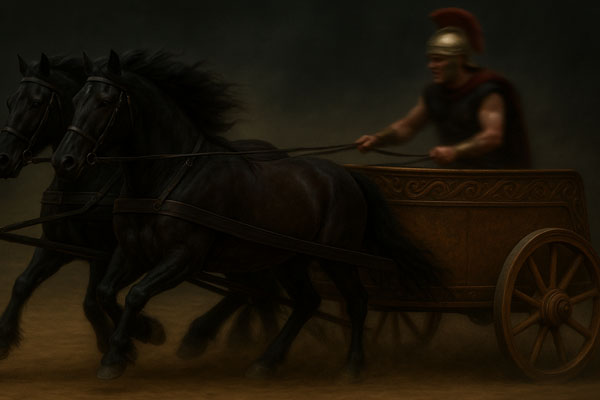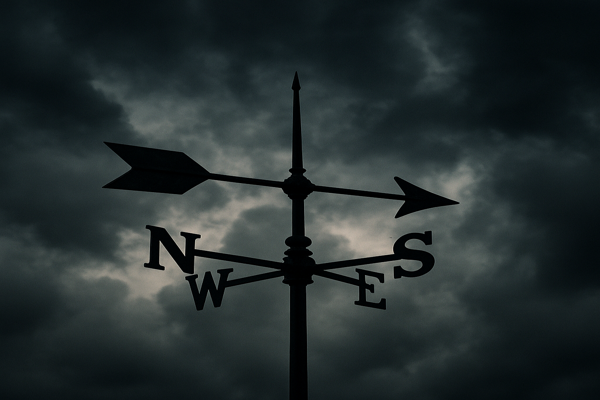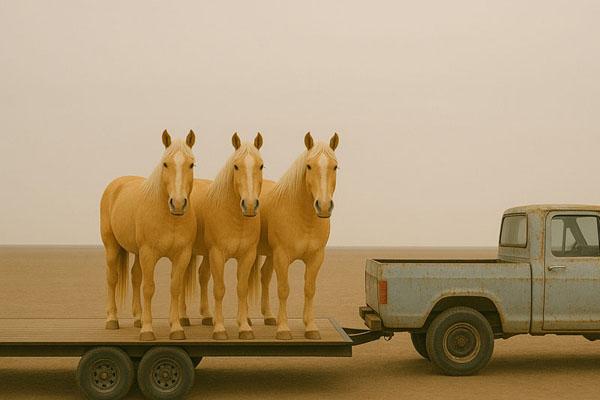A wrestling singlet, for those fortunate enough to have never worn one, is essentially a bathing suit designed by someone who hated children. It's a one-piece spandex nightmare that leaves nothing to the imagination and makes you look like a Victorian strongman who got lost on the way to the circus.
Now imagine wearing one in public. Not at a wrestling tournament where everyone else is similarly attired, but on Main Street. In broad daylight. While asking strangers for money.
Welcome to the Murray family fundraising strategy, circa 1992.
The Five-Thousand-Dollar Problem
My brother Matt had just qualified for Grand Nationals in Hershey, Pennsylvania—the Super Bowl of youth wrestling. This was huge. Kids from all over the country would compete. College scouts would be there. Matt, at ten years old and wearing dance shoes he'd bought from a thrift store (because Dad thought they were "basically wrestling shoes"), had somehow dominated the state competition.
There was just one problem: Getting our family of five to Pennsylvania and staying there for a week would cost about $5,000.
In the Murray household, $5,000 might as well have been $5 million. We were the kind of family where Mom could make a single chicken feed us for three days, where our "good" car had a license plate covering a hole in the floor, and where "eating out" meant the gas station had 2-for-1 hot dogs.
Dad called a family meeting, which was never a good sign. Family meetings meant either someone was in trouble or Dad had an idea. Sometimes both.
"We're going to raise the money," he announced with the confidence of a man who had never successfully raised money for anything in his life.
"Like a car wash?" I suggested hopefully. Normal families did car washes.
"Car washes don't make real money," Dad said, dismissing the entire concept of normal fundraising with a wave of his hand. "We need something that shows people you're serious athletes. Something that demonstrates commitment."
I should have run right then. Should have sensed the danger in the way his eyes lit up, that particular gleam that meant Dad's brain had made one of its creative leaps that made perfect sense to him and would horrify everyone else.
"You're going to wear your singlets and go door-to-door asking for donations."
The silence that followed was so complete I could hear my soul leaving my body.
The Great Singlet Revolt of 1992
"No," I said immediately. I was thirteen, which meant my sense of shame had recently upgraded from standard to professional-grade. "Absolutely not. Never. I would rather die."
"It's for nationals!" Dad said, genuinely baffled by my resistance. "This is a huge opportunity!"
My sister Melissa, eleven and afraid of nothing, was already nodding. "How much do we each need to raise?"
Matt, the actual wrestler going to nationals, was practically bouncing with excitement. "Can I do my demonstration moves?"
"I'm not doing it," I repeated, crossing my arms. "I'll wash a thousand cars. I'll sell my bike. I'll get a job. But I'm not walking around town in a singlet asking for money."
Dad looked at me with that particular brand of disappointment reserved for children who refuse to embrace public humiliation for the greater good.
"Scott, this is for your brother. For our family."
It was emotional manipulation of the highest order, and it worked. Of course I wanted Matt to compete. He was genuinely talented, the kind of natural athlete I'd never be. I just didn't see why his success required me to parade around town dressed like a Victorian swimmer.
The Negotiation
After an hour of debate that would have made UN peacekeepers weep, we reached a compromise: I would come along and "support" the fundraising effort, but I would not, under any circumstances, go into any building wearing a singlet.
"You'll wait in the car?" Mom asked, trying to understand my terms.
"I'll wait in the car," I confirmed.
"In your singlet?" Dad pressed.
"In my singlet," I conceded through gritted teeth. "But I'm not getting out."
"That's ridiculous," Melissa said. "You're going to sit in the car in a singlet while we do all the work?"
"Yes," I said with zero shame. "That's exactly what I'm going to do."
The First National Bank of Humiliation
That Saturday morning, we loaded into the van—three kids in singlets under warm-up jackets, one dad with a clipboard and the confidence of a carnival barker, and one mom who had developed a sudden urgent need to reorganize the store she owned.
"I'll meet you for lunch," she said, which we all knew meant "I refuse to witness this disaster in real-time."
Our first stop: the banks. "Always start with the banks," Dad explained. "They have money."
"That's not how banks work," I pointed out from the back seat.
"It is if you're cute enough," he replied, pointing at Matt, who was practicing his "please give us money" smile in the mirror.
At the first bank, I watched through the window as Dad marched my siblings inside. Even from the car, I could see the exact moment the bank tellers realized what was happening. Their expressions went from "How can I help you?" to "What am I looking at?" to "Is this legal?"
Twenty minutes later, they emerged victorious.
"Thirty-seven dollars!" Matt announced, climbing back in the van. "The bank president gave us twenty!"
The Grand Tour of Shame
For the next four hours, I had a front-row seat to Murray family theater. Through the van windows, I watched:
At the pharmacy: Matt demonstrating his ear protection technique to an elderly couple who looked both alarmed and charmed.
At the hardware store: A customer actually volunteering to be Matt's opponent for an impromptu wrestling demonstration between the paint cans and plumbing supplies.
At the grocery store: Dad leading my siblings straight to the coffee corner where the retired farmers held court. They were in there for thirty minutes. When they came out, Matt was glowing.
"One of them wrestled in college!" he announced. "He showed me this grip—look!"
"We got sixty dollars from that stop alone," Melissa added, counting bills.
At the truck stop: Matt marching right up to a trucker who looked like he could bench press our van. Within minutes, they were laughing and the trucker was pulling out his wallet.
"He said we reminded him of his grandkids," Matt reported. "'Except weirder,' he said. Then he gave us twenty dollars!"
The Part Where I Almost Broke
By noon, they'd raised over $400. Dad kept looking at me in the rearview mirror with this expression that said, "You're missing out on life-changing experiences."
I slumped lower in my seat, my singlet making embarrassing squeaking sounds against the vinyl. Through the windshield, I could see Mrs. Peterson, my former second-grade teacher, heading toward our van with her grocery cart.
I dove to the floor, pressing myself flat against the horrible brown carpeting that smelled like decades of spilled juice boxes and forgotten French fries.
"Is that Scott?" I heard her ask through the window.
"He's... supporting from a distance," Dad explained.
"In a singlet?"
"It's complicated."
After she left, Melissa leaned over the seat. "You know hiding makes it weirder, right?"
"Nothing about this could be weirder," I muttered from the floor.
The Twist
Here's the thing about small towns: news travels fast. By our second weekend of fundraising (because yes, we did this twice), word had spread. The Murray kids were raising money for nationals. The community—the same community that had watched Dad throw a chair through a bank window, the same community that had seen us ride through downtown in a chariot—decided to show up for us.
Business owners started setting aside donations before we even arrived. The owner of the Ford dealership handed over a hundred-dollar bill and said, "My kid wrestled in high school. I know how expensive these tournaments are."
The coffee shop ladies had an envelope waiting with "For the Murray Kids" written on it in shaky cursive.
Even the bank—not the one with the broken window, obviously—had their staff contribute to a pool.
By the end of the second weekend, we'd raised all $5,000.
The Universal Truth About Embarrassment
I learned something important during those weekends, though it took me years to articulate it: There's a difference between being laughed at and being laughed with, and sometimes, when you're lucky, a community decides to laugh with you even when you're wearing a singlet in public.
Matt went to nationals and dominated—first place in Greco-Roman, first in sambo, second in freestyle. Melissa won the women's division, her first time competing against other girls after years of wrestling only boys. Even I managed to place fourth, though I spent most of the tournament thinking about how many people had contributed to getting us there.
The old farmers from the coffee corner. The truckers at the rest stop. The bank tellers who emptied their purses. Mrs. Peterson, who I later learned contributed $50 despite my hiding from her in the van.
"They all invested in us, not because we were wearing singlets (or in my case, hiding in a van wearing a singlet), but because sometimes a community decides to lift up its weird kids, even when those kids' father has some genuinely terrible fundraising ideas."
The Epilogue
Years later, at my high school graduation, the owner of the hardware store pulled me aside.
"You going to college?" he asked.
"Yes sir. Kansas State."
"Good," he said. "You know, I always remembered you kids coming in with those wrestling outfits. Your brother was so excited, demonstrating moves for everyone. But you—you stayed in the van, didn't you?"
I felt my face burn with old shame. "Yes sir."
He laughed. "Smart kid. Knowing when to show up and when to stay in the car—that's a life skill right there."
He handed me an envelope. "For college," he said. "No singlet required."
Inside was a check for $100 and a note: "For the kid smart enough to stay in the van."
What I Know Now
Dad's fundraising plan was objectively terrible. Making children walk around in singlets asking for money violated every principle of dignity and probably several child welfare guidelines.
But it worked. Not because of the singlets—those were just Dad being Dad, turning everything into performance art. It worked because people saw a family trying to get their kids to something special, even if that family's methods were completely unhinged.
I spent those weekends mortified, hiding in a van, convinced I was preserving my dignity while my siblings sacrificed theirs. But looking back, we were all doing the same thing: whatever it took to support each other, even when it was embarrassing, even when it was awful, even when it required wearing or hiding in a singlet.
That's what family is, maybe. Not the people who save you from embarrassment, but the people you're willing to be embarrassed with. Or at least adjacent to. In a van. On the floor. Wearing a singlet you refuse to display in public.
Either way, we made it to nationals. Together. Even if some of us never left the vehicle.
Years after Dad passed, I still think about those fundraising weekends. Not just the embarrassment or the money we raised, but the way he refused to see any limitation as permanent. Can't afford nationals? Make the kids wear singlets and ask for money. It was ridiculous. It was mortifying. It was pure Dad—seeing the world not as it was, but as it could be if you were just willing to be creative enough (and shameless enough) to make it work.



